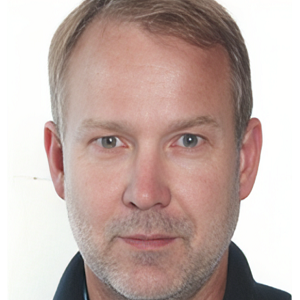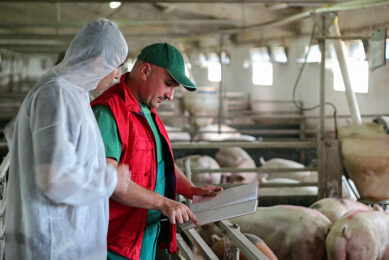Johannes Kauffold (IPVS): ‘Germany welcomes pig vets in challenging times’

Exactly 20 years after the previous edition of the International Pig Veterinary Society (IPVS) Congress in Germany, the country once more hosts the global pig veterinary event. Held in co-location with the European Symposium for Porcine Health Management (ESPHM), the event in Leipzig aims to attract 3,000 pig veterinarians between 4-7 June.
The country is the same as 20 years ago: Germany is still Germany. In terms of swine however, something definitely changed. In 2004, Germany was Europe’s number 1 pig producing state. According to FAO statistics, the country has 25.7 million pigs. Fast forward to some 20 years later and this amount has come down to 21.2 million. Spain overtook Germany in recent years.
Ever-growing pressure
In a world where growth appears to be the key driver of everything, the decrease says a lot about Germany’s atmosphere at the moment. The contraction is the result of ever-growing pressure of tighter welfare legislation, African Swine Fever in its wild boar population and subsequent trade issues.

Prof Johannes Kauffold is president of the IPVS. Attached to the faculty of veterinary medicine at Leipzig University, he is optimistic that the event can prove that the country still has many reasons to be optimistic.
“That is a good question. If such a big congress comes back to a country after 20 years, everybody is happy, especially in a time where the German swine industry suffers a little bit. It is also recognising the role Germany still plays in the swine producing world.”
“Together with the European College of Porcine Health Management (ECPHM), we put a lot of effort into the scientific programme. I believe our programme is pretty comprehensive and also scientifically sound. And maybe a new format, combining IPVS and ESPHM, which I think is nice. The Europeans always want to see flash poster presentations which acknowledge specific high-quality scientific posters, something which we usually do not have at IPVS.
“We identified other topics we think are important, which includes one on management, i.e. how to deal with employees. We also spend attention to crises and disasters, and of course we are addressing current health or epidemiological issues like African Swine Fever, etc.
“There is also a big poster area with consists of printed and electronic posters. We will have shared poster sessions. So we have old and modern structures and presenting – I believe the scientific quality is going to be very high.”
“We received 1,014 submissions and all went through a stringent review process. Of those, we accepted roughly 975 – yet not every presenter registered for the event. So we ended up having 940 contributions either as flash, oral or shared poster presentation. There will be roughly 120-130 oral presentations; all the other contributions are posters.”
“Our expectation is to welcome 3,000 delegates in total. I am not sure if we will completely meet this target. Then again, more is not always better. The number 1 country of origin is Germany, number 2 is Spain. There will be a good number of delegates from Brazil, China, Poland and Bulgaria as well.”
“What is control? It is still endemic in the wild boar population. If you mean that the virus is still present in Brandenburg and Saxony, then you can call it under control. But we still have new cases among the wild boar population. We have had it for 3 years now. It is still mostly in the wild boar population and it has not left – bar a few occasions. But mostly it remained in those 2 states, so it is kind of under control. However, we still have this problem with restrictions, buffer zones and specific slaughter places. And of course the exports to outside of the EU that were down.”
“Yes, ASF is endemic in many Asian countries and everybody fears it. Poland has it, Romania has it, there will be a keynote on eradication in Romania.”
“One would think of the common diseases, like PRRS, then PCV2, Streptococcus suis and swine influenza. And increasingly artificial intelligence. I have a problem with AI, today and tomorrow and the day after tomorrow etc. As long as it helps and is an addition to normal husbandry it is OK. But if it overtakes human responsibility for pigs, it is not.”
“The pig inventory went down dramatically. Currently we down to as far about 1.3 million sows, and may may go further down to 1 million or lower in the future years. That is a big challenge, to produce, but also to the veterinary and supplying community.”
“Plus, animal welfare has become a big theme. Especially the breeding and farrowing areas are to be remodelled (free farrowing and freedom during breeding will become mandatory in Germany in 2036 and 2029 respectively, ed.). That will contribute to Germany losing more and more producers.
“In addition, we now have environmental issues, in terms of CO2. This regulation on air pollution is called “TA Luft”. Producers and veterinarians are feeling challenged.”
“Decreasing, unfortunately, but very responsible. Of course there are always black sheep, but the producers and the veterinarians know their responsibilities. I think that is very important.”
“When the overall feedback is positive. And when I look at satisfied and happy faces, from a scientific point of view but also from the socialising point of view – for me those are almost equally important.”









